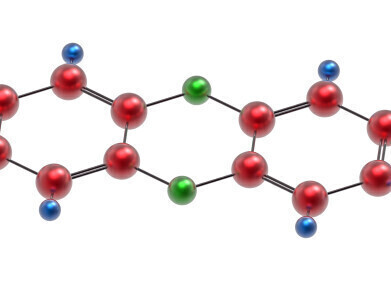GC-MS
Are Flies as Picky as Humans When It Comes to Choosing a Mate?
Feb 15 2017
Life is full of decisions. Choosing a career, selecting a car, or even just deciding what to have for dinner. As humans, we’re constantly making decisions. And even though we might not think so, they are rational decisions. For whatever reasons — even those seeming irrational — we determine which option is most favourable and go for it.
In the past, this rational decision-making has been found to be evident in other animals like birds when looking for food. But now, a team of scientists from the University of Washington have shown that it’s also evident in flies. And this time it’s for a whole new choice — mating.
The importance of transitivity
Choosing a partner is one of the most difficult choices we make — if you can call it a “choice”. And until now, it was thought male flies weren’t choosy, simply mating with whichever female is closest. But through a series of tests, researchers at Washington have noticed flies displaying a key part of rational choice. Namely, transitivity.
Transitivity is the process of ranking options by preference and then — based on this order — making a decision. Humans will do this and the ranking of preference could be one dimensional or more complex. With food for instance, it could be based on flavour, mood, ease, time, cost and health.
By placing one male fruit fly in a small arena with two females, scientists exposed the male to an immediate choice. The females were coloured with fluorescent powder so they could be identified. This test was repeated several times with different pairings of females, to account for the 10 different strains of female flies. In total, 45 different pairings were used, which were each tested 10 to 20 times each.
Sense deprivation
Some of the males tested were blind or lacking senses of smell or taste. This allowed scientists to better determine what was leading them to the females. The blind males displayed transitivity, as did those lacking senses of smell and taste, but the flies with no smell or vision did not display the same behaviour.
Using gas chromatography, the team analysed the chemical secretion of the female flies. They found those selected less often for mating were secreting higher levels of two cuticular hydrocarbons. Analysis of hydrocarbon residues using similar methods are discussed in the article ‘The Benefits of Thermal Desorption Coupled with Gas Chromatography for the Analysis of Hydrocarbon Residues in Liquefied Petroleum Gas’. So, next time you’ve got a date, you might want to check which CHCs you’re secreting before you go.
Events
Jan 20 2025 Amsterdam, Netherlands
Feb 03 2025 Dubai, UAE
Feb 05 2025 Guangzhou, China
Mar 01 2025 Boston, MA, USA
Mar 04 2025 Berlin, Germany











